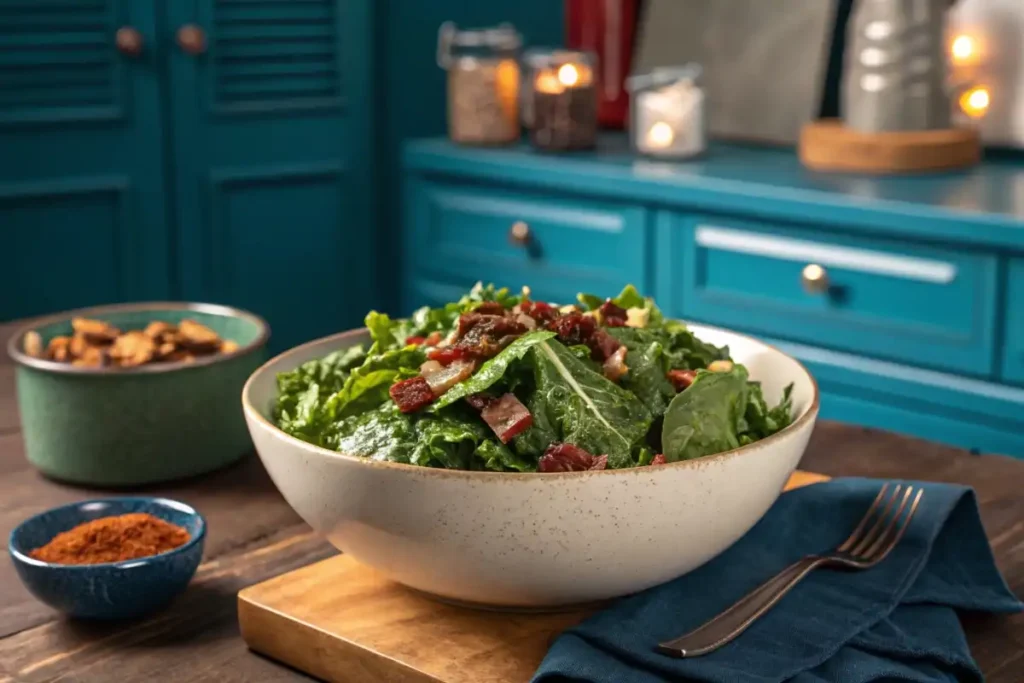Understanding the Buzz
At the present time, more Americans are asking: Is beef bacon healthier? This question reflects a growing curiosity about alternatives that feel familiar, yet offer unique advantages. In contrast to many traditional breakfast options, beef bacon promises a savory, meaty flavor that intrigues adventurous eaters. Because it stands out with a distinctive taste and crisp texture, many wonder if choosing it could also bring health benefits.
In addition, health-focused consumers seek foods that align with their nutrition goals. Therefore, exploring beef bacon from a nutritional perspective makes sense. Eventually, knowing the facts helps you decide if it fits into your lifestyle. To sum up, understanding Is beef bacon healthier? goes beyond taste—it’s about making informed choices that balance flavor, texture, and nutrition.
What Exactly Is Beef Bacon?
To address the question Is beef bacon healthier? we must clarify what this product is. Beef bacon consists of thinly sliced, cured, and sometimes smoked strips made from beef. In many cases, producers select well-marbled cuts to achieve a satisfying balance between lean meat and fat. Because of this careful selection, these strips cook up crispy on the outside while remaining meaty and rich on the inside.
The Production Process
- Selection of Beef Cuts: The belly or navel section of the cow often provides the best balance of fat and lean muscle.
- Curing and Seasoning: Producers apply a mixture of salt and spices to develop flavor. In addition, natural sweeteners or seasonings may be used to enhance taste.
- Smoking (Optional): To create a smoky profile, the strips may undergo a controlled smoking process. This step adds complexity and depth.
- Slicing and Packaging: Finally, the cured and smoked beef is sliced thinly, packaged, and ready for cooking.
Because of these steps, beef bacon emerges as a versatile product that can fit into many meal plans.
Nutritional Highlights: Exploring Is Beef Bacon Healthier?
To determine Is beef bacon healthier? than other options, let’s consider its nutritional profile. At the present time, consumers prioritize transparency, so understanding macronutrients and micronutrients helps make informed decisions.
Approximate Nutrition per Two Slices (28g):
| Nutrient | Per Serving (28 g) |
|---|---|
| Calories | ~90 kcal |
| Protein | ~6 g |
| Total Fat | ~6 g |
| Saturated Fat | ~2.5 g |
| Carbohydrates | ~1 g |
| Sodium | ~190 mg |
| Iron | ~2% DV |
| Zinc | ~4% DV |
(Note: Values vary by brand and preparation method.)
Because beef bacon provides protein and essential minerals like iron and zinc, it can fit into many diets. However, moderation remains important. For instance, the sodium content might be a consideration for those watching salt intake. Therefore, balance it with fresh fruits, vegetables, and whole grains. In addition, consider different cooking methods to reduce added fats and oils.
Comparing Beef Bacon to Traditional Breakfast Meats
Many consumers wonder: Is beef bacon healthier? when compared to other common morning meats. To demonstrate, let’s look at how it measures against well-known alternatives. Although we are not directly mentioning certain traditional products, consider that other proteins often contain varying fat and sodium levels.
Possible Advantages
- Protein Density: Beef bacon often provides a solid protein content per serving, supporting muscle maintenance.
- Flavor Complexity: Because it has a rich, savory taste, a small portion might feel more satisfying. Therefore, you might eat less overall, indirectly supporting portion control.
- Versatility: It adapts to various meal plans, from breakfast scrambles to salads or wraps.
Potential Considerations
- Sodium Content: Curing processes can raise sodium levels. Therefore, those limiting sodium should enjoy it sparingly.
- Fat Content: While it contains beneficial nutrients, it still provides saturated fat. Hence, balance and moderation remain key.
In conclusion, is beef bacon healthier? depends on personal dietary goals. For some, it may be a more appealing choice due to flavor and nutrient balance. For others, it may require careful consumption alongside nutrient-dense foods.
Cooking Methods for Healthier Results
Asking Is beef bacon healthier? also involves how you prepare it. In addition, cooking methods can influence fat content, texture, and overall healthfulness.
Pan-Frying
- Place the strips in a non-stick skillet over medium heat.
- Cook for a few minutes on each side until crisp.
- Transfer to a plate lined with paper towels to absorb excess grease.
Because pan-frying allows control over crispness, you can cook it until most fat renders out. In contrast, cooking it too quickly over high heat may lead to charring or retaining more oil.

Baking
- Preheat the oven to about 400°F (204°C).
- Arrange strips in a single layer on a parchment-lined baking sheet.
- Bake for 10-15 minutes, flipping halfway, until crisp.
Baking helps even out cooking. Furthermore, it requires less direct oil usage. Therefore, it can be a convenient way to achieve crispy results while letting excess fat drip away.
Grilling
- Preheat your grill to medium heat.
- Lay the strips carefully on the grates.
- Flip often to prevent burning.
Grilling adds a smoky flavor and can help reduce some fat. In addition, outdoor cooking can be a fun, social way to incorporate this ingredient into your meals.
Flavor Pairings for Balanced Meals
If you still ponder Is beef bacon healthier? consider what you serve alongside it. Because combining it with nutrient-rich foods creates a balanced plate, you can improve overall meal quality.
Breakfast Ideas
- Veggie Scramble: Add sautéed spinach, mushrooms, and cherry tomatoes alongside your crisp strips.
- Avocado Toast Topping: Layer thin slices on whole-grain toast with avocado for healthy fats and fiber.
- Fresh Fruit on the Side: Pair with melon cubes or berries to add vitamins, antioxidants, and hydration.
Lunch and Dinner Options
- Salad Enhancement: Crumble a small amount over a leafy salad with mixed greens, cucumbers, and a light vinaigrette.
- Wraps and Sandwiches: Use it as a topping in wraps filled with lean protein, lettuce, and sliced peppers.
- Grain Bowls: Place a few crispy pieces atop quinoa or brown rice, then add roasted vegetables and a drizzle of olive oil.
In contrast to eating it alone, pairing it with produce, whole grains, and lean proteins ensures a more balanced nutritional profile.

A Quick Laugh to Brighten the Day
Joke Time:
Why did the chef bring a notepad to breakfast?
Because the meal was so crisp and savory, he had to “take notes” on how beef bacon made everyone smile!
(Cheesy humor, but hey, sometimes a little laugh pairs nicely with a hearty meal.)
Considering Dietary Preferences and Restrictions
To fully understand Is beef bacon healthier? consider individual dietary needs. At the present time, consumers follow various eating patterns for health, ethics, or cultural reasons. Because beef bacon originates from beef, it may fit certain guidelines better than others.
Suitable for Certain Diets
- Protein-Focused Plans: High-protein diets might find it a tasty addition in moderation.
- Low-Carb Approaches: With minimal carbohydrates, it can complement low-carb eating styles.
Things to Keep in Mind
- Sodium Sensitive Individuals: High sodium levels may be a concern, so moderate portions and choose lower-sodium varieties if available.
- Overall Balanced Diet: Even if the product seems “healthier” in some aspects, it should not dominate your meal plan. Variety remains essential.
To sum up, there is no one-size-fits-all answer. Eventually, determining is beef bacon healthier? depends on personal dietary goals, taste preferences, and health conditions.
Quality Matters: Choosing the Best Products
When asking Is beef bacon healthier? the quality and sourcing of the product matter. For example, seek brands that value transparency. Because better-quality products often use fewer additives and more natural seasonings, you may find improved flavor and potentially a more favorable nutrient balance.
Tips for Shopping
- Read Labels: Check for information on curing, added sugars, and sodium content.
- Seek Minimal Additives: Look for options with shorter ingredient lists and no unnecessary preservatives.
- Consider Local Producers: Sometimes smaller, artisanal brands prioritize quality and may offer unique flavor profiles.
In addition, exploring multiple brands can help you find one that best aligns with your health goals and taste preferences.
Is Beef Bacon Healthier? Myths vs. Facts
With its rising popularity, some myths circulate around is beef bacon healthier? Let’s address a few common misconceptions.
Myth 1: It’s Entirely Lean
In reality, beef bacon still contains fat. Although the balance of fat may differ from other options, it’s not always “lean.” Therefore, moderation remains key.
Myth 2: It’s Sodium-Free
Because curing involves salt, it often contains sodium. In contrast to fresh cuts of beef, cured strips can have higher sodium levels.
Myth 3: It’s the Same as Other Strips
While it shares a similar crispy texture, it offers a distinct beefy flavor. Because of this uniqueness, comparing it directly to other products may lead to confusion. Think of it as its own special category.

Incorporating Beef Bacon into a Healthy Lifestyle
If you wonder Is beef bacon healthier? consider how it fits into your broader lifestyle. In addition, think about portion sizes, cooking methods, and companion foods.
- Portion Control: Limit yourself to a few slices and fill the rest of your plate with nutrient-dense options.
- Diverse Meals: Enjoy it occasionally rather than daily to maintain variety and prevent nutritional imbalances.
- Cooking Smart: Opt for baking or grilling to reduce added fat. Pat off excess oil before serving.
By taking these steps, you can make beef bacon a tasty accent rather than a dietary centerpiece.
Potential Health Benefits of Moderate Consumption
While moderation is essential, enjoying beef bacon in limited amounts may offer some positive aspects.
- High-Quality Protein: Protein supports muscle maintenance and satiety.
- Mineral Content: Iron and zinc contribute to immune function and energy metabolism.
- Satisfaction and Enjoyment: Flavorful foods can make healthy eating more enjoyable. Therefore, adding a small portion might prevent feeling deprived.
However, remember that health is about the big picture. In addition, focus on overall dietary patterns rather than single ingredients.
Addressing Common Questions: FAQ About Is Beef Bacon Healthier?
People Also Ask Section
Q: Can beef bacon be part of a balanced meal plan?
A: Yes. In addition, enjoy it with vegetables, whole grains, and lean proteins. Because this ensures balance, it can fit into various diets.
Q: Does beef bacon contain fewer calories than other strips?
A: Calorie counts vary by brand and cut. In contrast to some options, it may have a similar calorie range. Therefore, check labels for precise details.
Q: Is beef bacon lower in fat?
A: It contains fat since marbling adds flavor. However, baking or grilling can help reduce excess grease. Eventually, controlling portion sizes also helps manage fat intake.
Q: Can I find reduced-sodium versions?
A: Some brands offer lower-sodium options. In addition, always read labels to find products that meet your needs.
Q: What is beef bacon made of?
Beef bacon is made from beef, specifically the belly or brisket cuts of the cow. These cuts are cured, smoked, and sliced in a manner similar to traditional pork bacon, offering a similar taste and texture with a beefy twist…
Q: Can Muslims eat beef bacon?
Yes, Muslims can eat 🥩beef bacon as long as it is prepared in accordance with Islamic dietary laws (Halal). This means the beef must be sourced and processed in a Halal-certified manner…
Q: Which is better, turkey bacon or beef bacon?
The choice between turkey bacon and 🥩beef bacon depends on personal preference and dietary…
Q: Can I cook it in the microwave to save time?
A: Yes, you can. However, microwaving may yield a less crispy texture. In contrast, baking or pan-frying often produces better results.
Q: Is beef bacon suitable for kids?
A: Children can enjoy it in moderation as part of a balanced meal. At the same time, consider their sodium intake and pair it with nutrient-rich sides.
Conclusion: Is Beef Bacon Healthier? Making Informed Choices
Is beef bacon healthier? This question depends on personal taste, dietary goals, and individual health considerations. In conclusion, it can offer a flavorful protein source with essential minerals. However, it contains saturated fat and sodium due to the curing process. Therefore, portion control and balanced meal planning become vital.
In addition, cooking methods like baking or grilling can reduce excess fat, improving its overall nutritional impact. Eventually, focusing on a variety of foods—lean proteins, fruits, vegetables, and whole grains—ensures a well-rounded diet. To sum up, is beef bacon healthier? It can be part of a wholesome eating pattern if enjoyed mindfully and combined with nutrient-dense foods.
